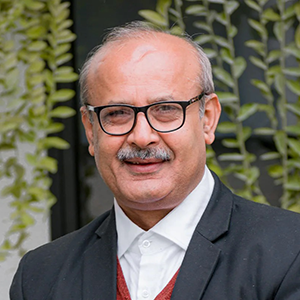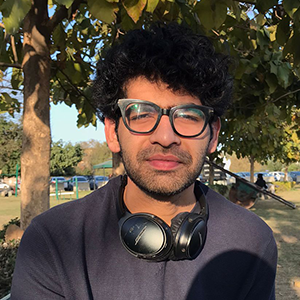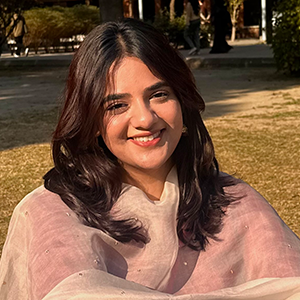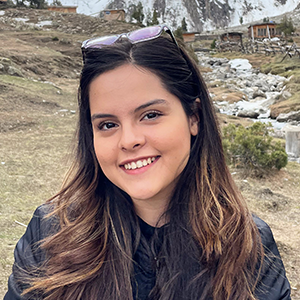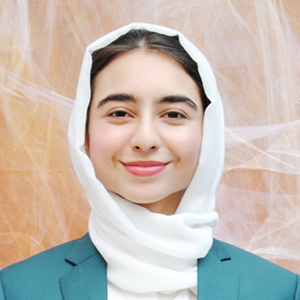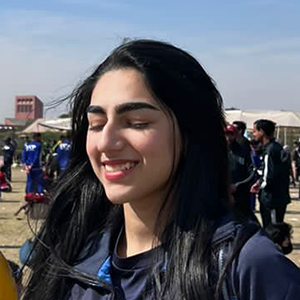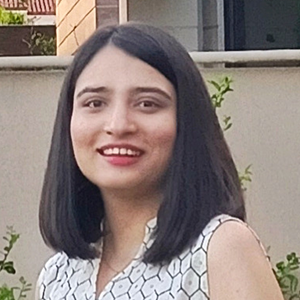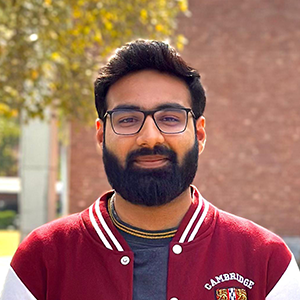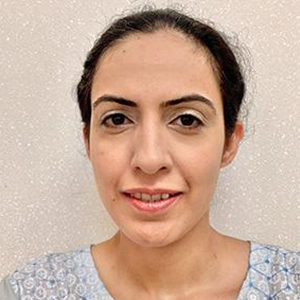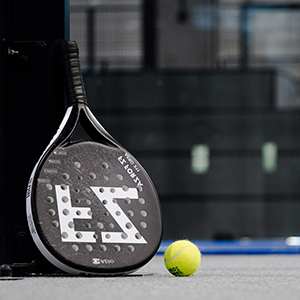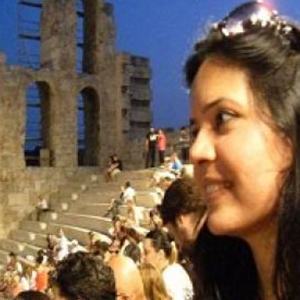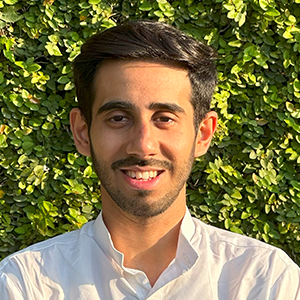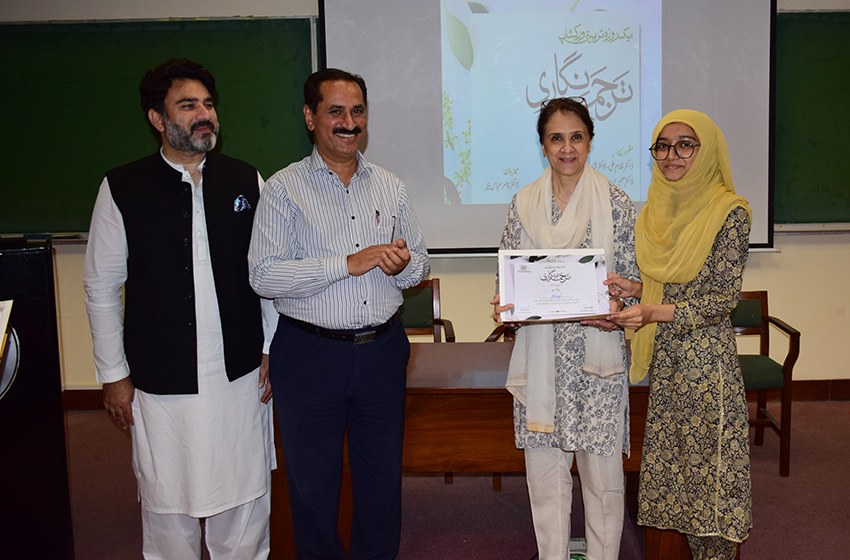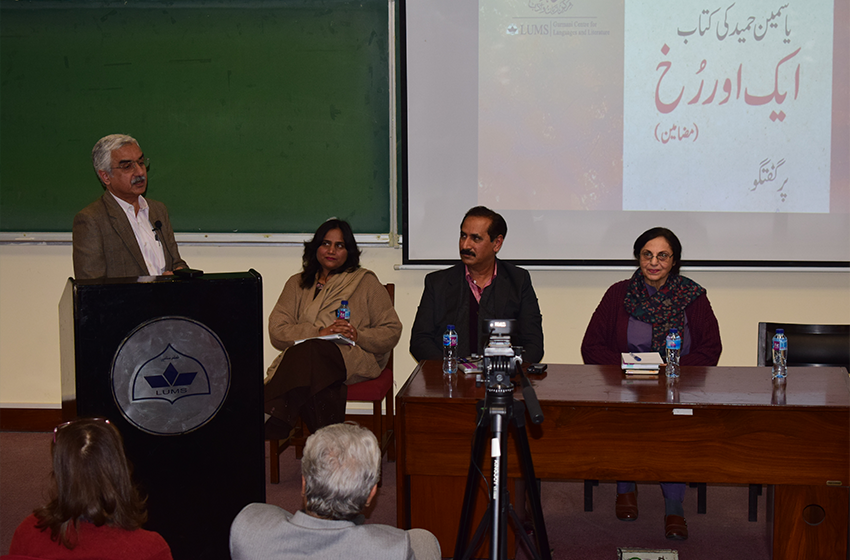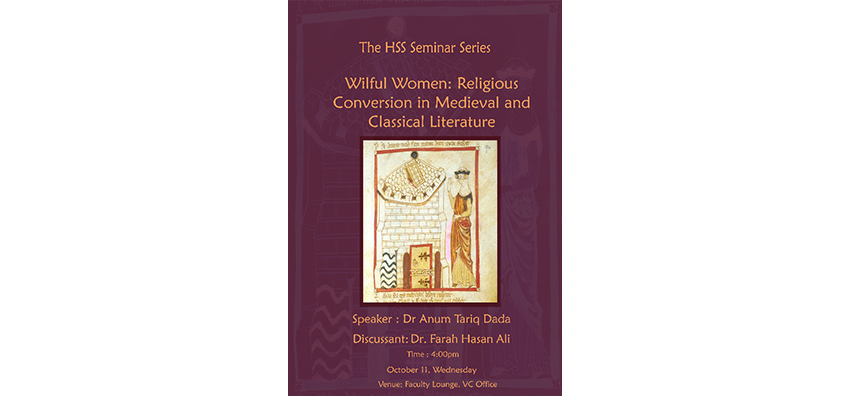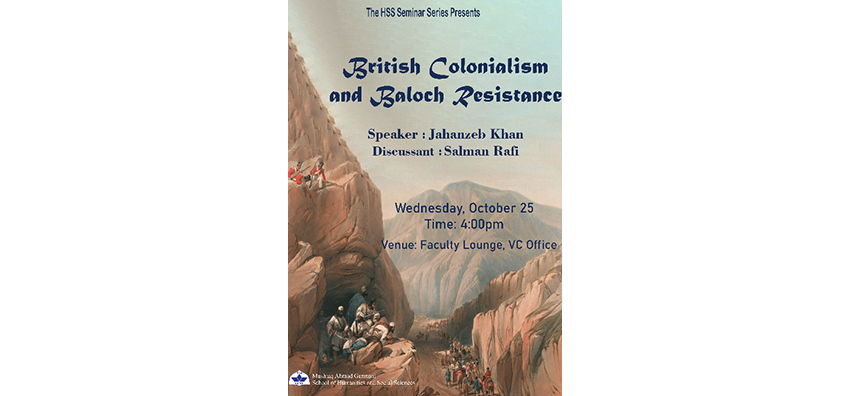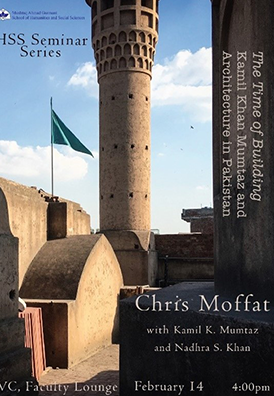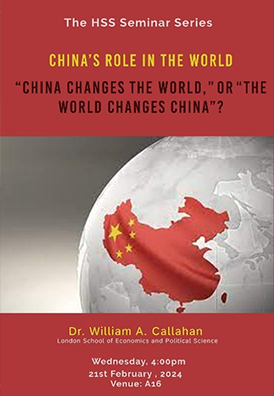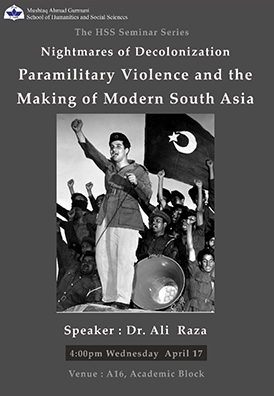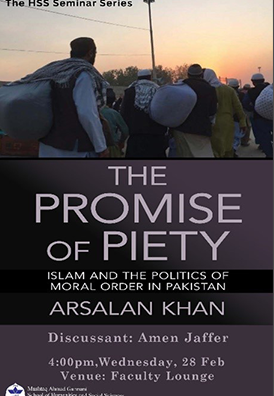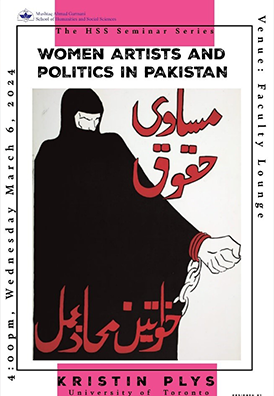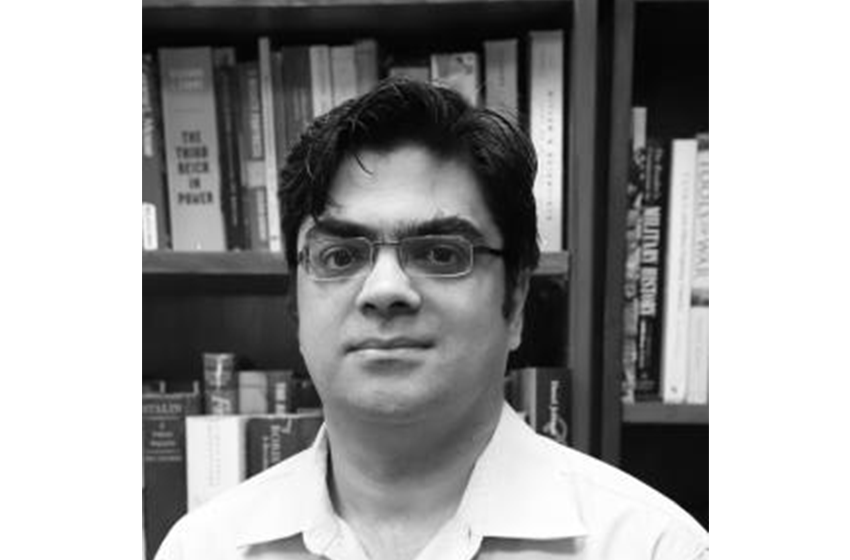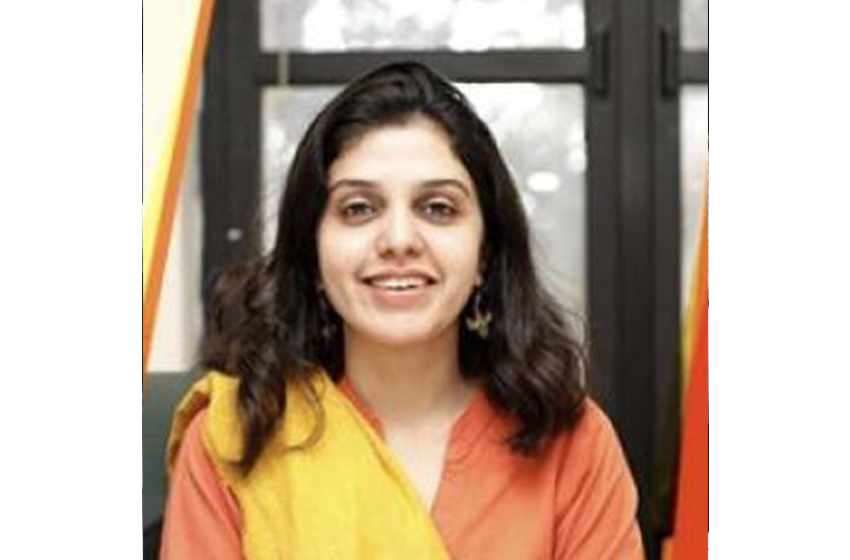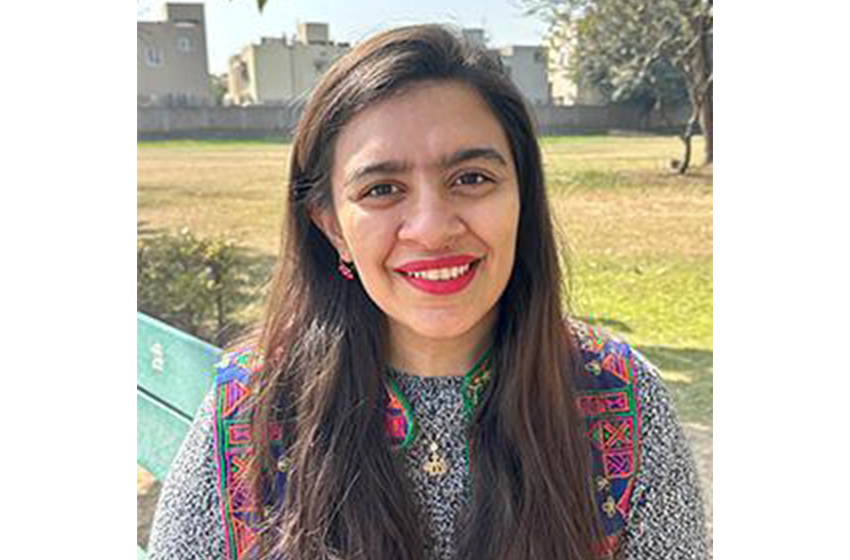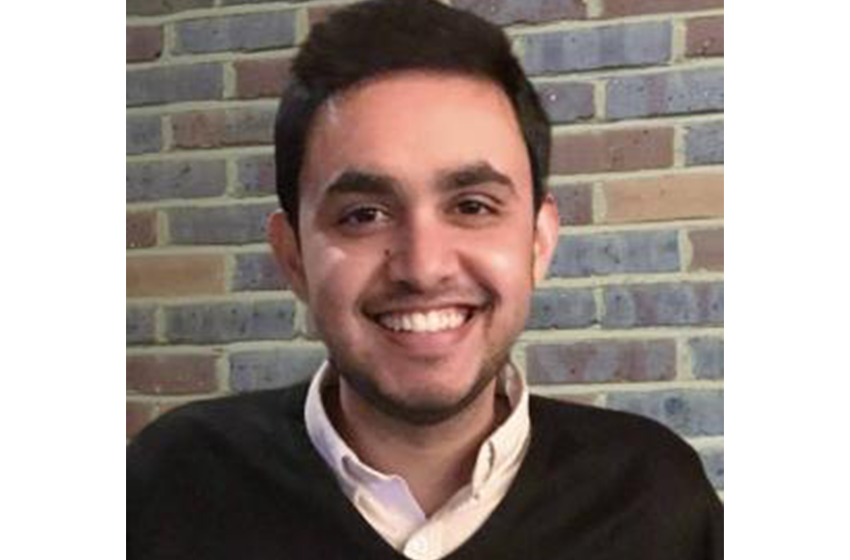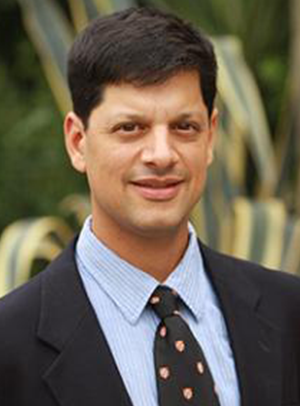
Message from the Dean
The appointment of Dr. Ali Cheema as Vice Chancellor was a proud moment for the Mushtaq Ahmad Gurmani School of Humanities and Social Sciences (MGSHSS). To see one of our faculty being recognised for his contribution and commitment to LUMS boosted the hopes and morale of many. Dr. Cheema has also brought an urgency and focus to LUMS’ future priorities and direction, and over the last few months we have begun to lay down essential foundations that will focus academic priorities and begin to address the long-term financial sustainability of LUMS.
The School’s reputation as a premier academic institution producing research on Pakistan in the area of humanities and social sciences continues to grow impressively. Recognition of this is highlighted in continued internationally acclaimed publications and the prestigious fellowships and collaborations that MGSHSS faculty continue to pursue with institutions including Oxford and the British Academy, amongst others.
MGSHSS’ commitment to its academic programmes remains one of its major priorities and following curriculum reviews, it has begun identifying major areas of focus for its research and academic programmes. Broadly, these areas revolve around the cross-cutting themes of space and environment, identity, heritage, poverty alleviation, human development, and resistance and resilience. We are also keen to push our students to be increasingly engaged in experiential learning. In the coming year, MGSHSS will lead a review of the core curriculum with an eye towards ensuring that all students from the School graduate with the essential skills that they need in their careers; this includes writing, analytical and data skills, qualitative and quantitative research proficiency, as well as an understanding of citizenship and their place in the world. Moreover, the School has always pioneered a student-centric approach and has identified student wellbeing as one of its priorities. As part of this, we will continue to strengthen academic advising and push for greater mental health support at both the school and university levels.
In terms of academic programming, it has been an extremely intense year. Both the Humanities and Social Sciences (HSS) and Economics departments held their flagship annual conferences (Between Containers and Canisters and Pathways to Development). MGSHSS also held a conference in memory of Professor Saba Mehmood (Gender, Piety, and Secularity) and a conference on Contemporary Literary Tends in Pakistan. The School maintained a vibrant array of talks, seminars, webinars, workshops, and exhibitions to ensure that the intellectual and cultural heart of the university keeps beating. In all of these academic endeavours, the Gurmani School is supported by its Centres - the Mahbub-ul-Haq Research Centre (MHRC), the Saida Waheed Gender Initiative (SWGI), and the Gurmani Centre for Languages and Literature (GCLL).
After years of effort, MGSHSS is thrilled to have acquired the Lutfullah Khan Sound Archive, the premier repository for the literary, cultural, musical, and intellectual heritage of Pakistan and the wider region. The scale, richness, and uniqueness of this incredible collection is unmatched in South Asia and its housing in LUMS will serve as an invaluable resource for interdisciplinary scholarship, student learning, and community outreach across various disciplines, including history, sociology, anthropology, religion, cultural studies, musicology, film studies, and more.
Finally, as part of the year’s activities, MGSHSS completed a major review of its alumni and found that job placement was as good as any other School at LUMS with MGSHSS graduates displaying excellence in a wide number of fields, ranging from the non-profit sector to the corporate world to film, music, and the arts. It is also with much pride that we find that out of our 6,000+ alumni, more than half are women, and that 75 per cent of these women are employed. The equivalent figure for female university graduates in Pakistan is 25 per cent.
As always, it is with a deep and continuing sense of gratitude and appreciation that the Gurmani School acknowledges the Gurmani Foundation, the Syed Babar Ali Foundation, the Shahid Hussain Foundation, the Bilquis and Abdul Razak Dawood (BARD) Foundation, and the Syed Mohammed and Sitwat Mohsin Endowment for their continued support during increasingly turbulent economic times. Their generous endowments to MGSHSS will help in research, student scholarships, and in strengthening the mission and vision of the School.
Dr. Ali Khan
Bilquis Dawood Chair and Dean,
Mushtaq Ahmad Gurmani School for Humanities and Social Sciences
Highlights
0
Seminar Series
0
Conferences
0
Workshops
0
Book Launches
0
Journal Publications
0
Awards, Achievements,
Fellowships, and Grants
0
Book and Book
Chapter Publications
0
In the Press and Op-eds
Awards, Achievements, Fellowships, and Grants
Events
Shadowlands: A Film Screening by Dr. Nida Kirmani
One of the oldest settlements in Karachi, Lyari, has been the site for on-going violence between political parties, criminal gangs, and law enforcement agencies since the early 2000s and has been generally labelled as one of several ‘no-go areas’ in the city. However, residents of Lyari tell a different story. Sociologist and Associate Professor of Sociology at MGSHSS, Dr. Nida Kirmani’s documentary film, ‘Shadowlands’, explores the lives of two residents of Lyari, both of whom have lost family members to police encounters. Dr. Kirmani was the Madeleine Haas Russell Visiting Associate Professor of South Asian Studies for the 2022-23 academic year at Brandeis University’s South Asian Studies Programme. Her documentary has been screened at many places across the world including Columbia, Boston, and Stanford Universities.
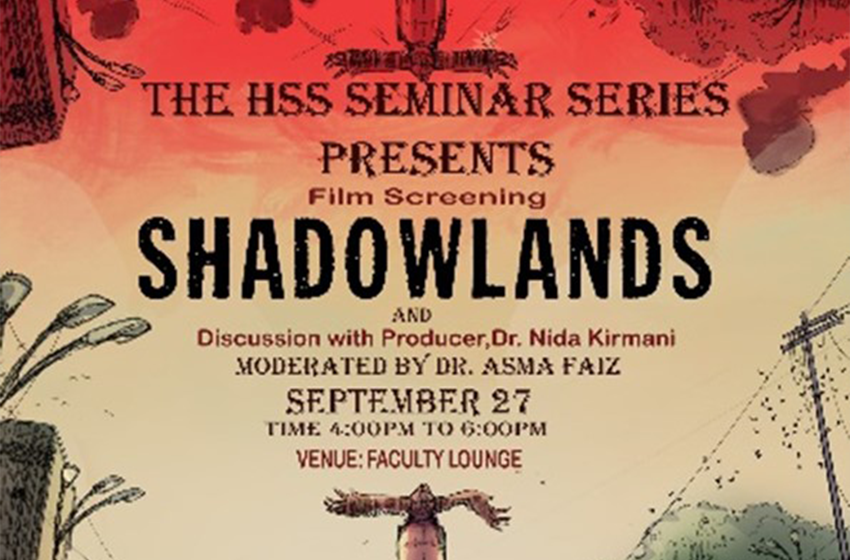
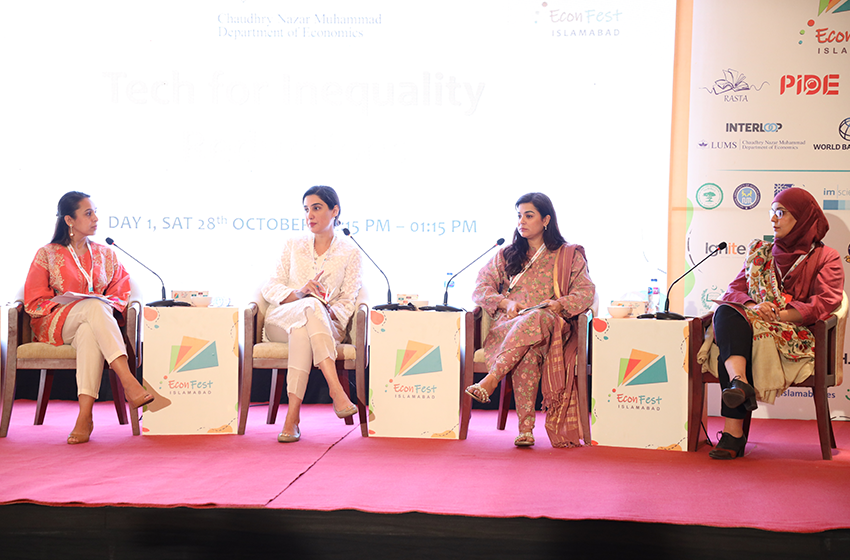
Panel Sessions at PIDE EconFest
The CNM Department of Economics organised two panel discussions at the Pakistan Institute of Development Economics (PIDE) EconFest held on October 28-29 in Islamabad. The first day’s panel, titled ‘Is Tech the Answer? Tech for Inequality Reduction,’ was moderated by Dr. Hadia Majid. The second day featured a panel session called ‘Policy, the Public, and Economic Disorder,’ moderated by Dr. Daniyal Khan. Also representing LUMS at the event were Dr. Syed Ali Hasanain and Nazish Afraz.
Pathways to Development Conference
The second ‘Pathways to Development Conference’ saw prominent academics, researchers, practitioners, and policymakers from within Pakistan, the Pakistani diaspora, as well as others working on Pakistan and the region, gather at LUMS to discuss issues vital to inequalities and social justice in the country. It was jointly organised by the CNM Department of Economics and MHRC, the Institute of Development and Economic Alternatives (IDEAS), the Institute of Development Studies at University of Sussex (IDS), the Consortium for Development Policy Research (CDPR), the International Growth Centre (IGC), and the Centre for Economic Research in Pakistan (CERP). Experts from across various disciplines presented their most recent research on growth and development over 20 riveting sessions. Overall, the conference sparked meaningful conversations, laying the groundwork for a growth-oriented and sustainable Pakistan.
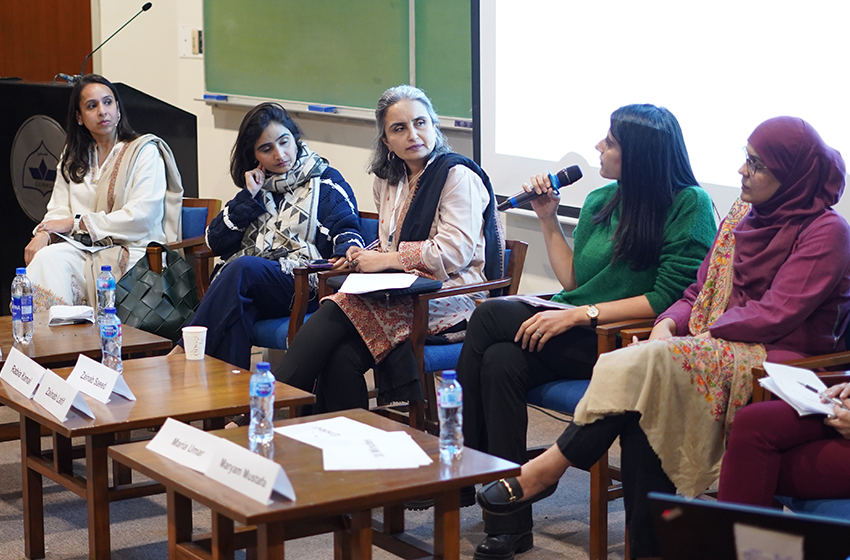
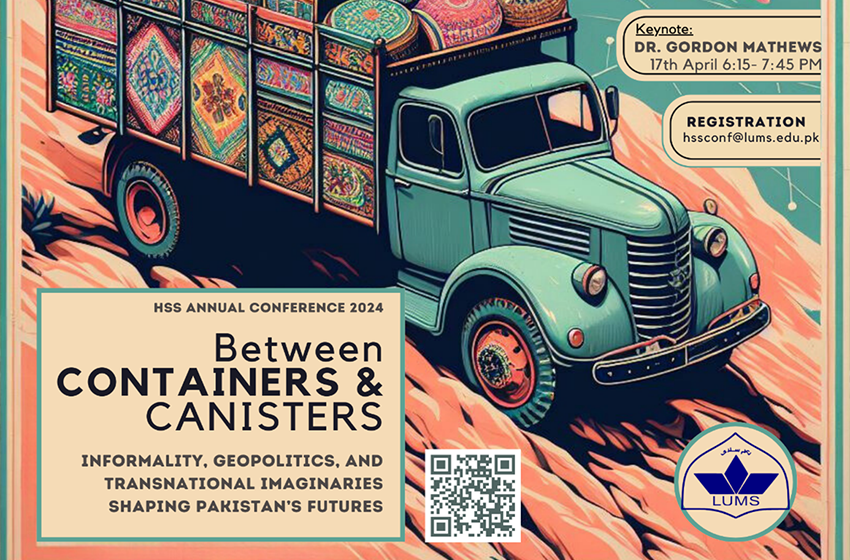
15th Annual HSS Conference: Between Containers and Cannisters: Informality, Geopolitics, and Transnational Imaginaries Shaping Pakistan’s Futures
Held from the April 17-19, 2024, the Conference was spread over 15 different sessions, with over 50 speakers and moderators joining from all over Pakistan and beyond, including the USA, UK, Germany, Canada, and Australia. It helped put LUMS at the centre of research happening on and in Pakistan regarding issues of formal and informal politics and economy. Professor Gordon Mathews, a world renowned academic and author of multiple books on issues of ‘low-end globalisation’, was this year’s keynote speaker. Apart from the sessions, the conference also featured an award-winning documentary, ‘Songs of the Sufi: Telling the untold story of Classical Qawwali’.
Launch of Gurmani Manual for Academic Writing
An event was organised to announce GCLL’s first publication, Gurmani Rahnuma Kitab: ‘Ilmi Nasr — Usool o Rasmiyāt (Gurmani Manual for Academic Writing) after the inception of its Publication Cell under the supervision of Dr. Nasir Abbas Nayyar in October 2023. The publication is designed as a valuable resource for everyone interested in Urdu academic prose and research writing. Both Syed Babar Ali, Founding Pro Chancellor and the mind behind the Gurmani Centre’s foundation, and Dr. Ali Cheema, Vice Chancellor, LUMS, graced the occasion with their presence. Dr. Tabassum Kashmiri, a literary historian and critic, presided over the session, while Dr. Najeeb Jamal, an Urdu critic and renowned researcher, joined the panel as a special guest. The hosts of the event were the editors of the book, Dr. Nayyar and Dr. Shaista Hassan.
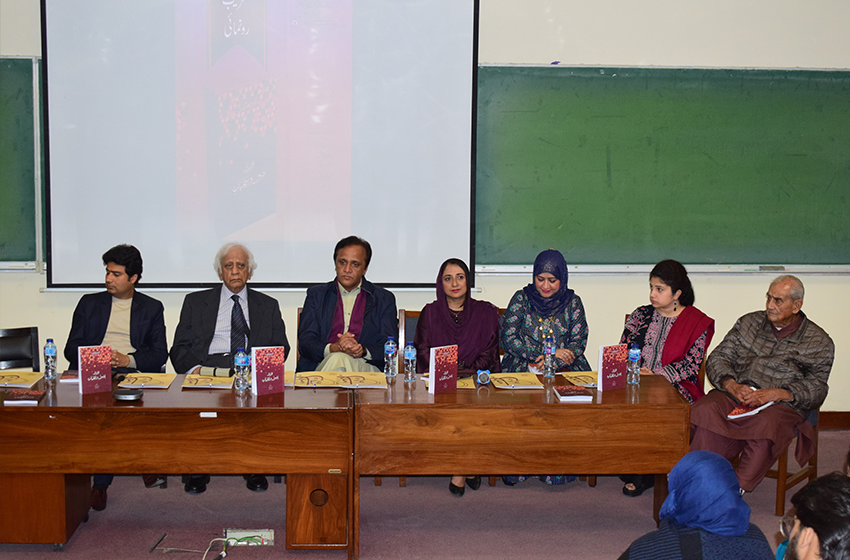
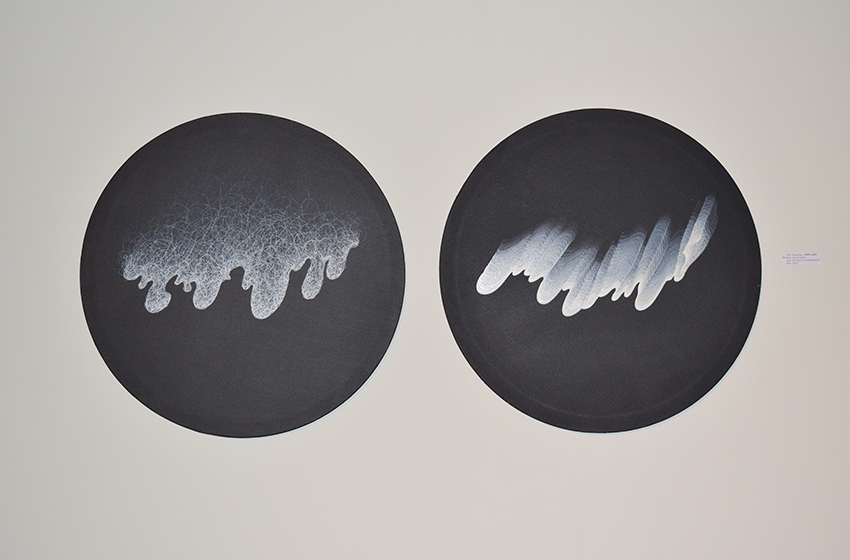
Art Exhibition—tār-e--harīr-e-do rang
featured a travelling exhibition of two renowned artists, Amna Manzoor (a miniature specialist) and Shah Abdullah Alamee (a master calligrapher), held in collaboration with the Tanzara Gallery in Islamabad. Each artwork displayed was a collaborative creation by the artist duo and presented aesthetic interpretations of Allama Iqbal’s Urdu and Persian poetry selections. A panel talk preceded the opening, where Amna Manzoor and Shah Abdullah were joined by Professor Salima Hashmi (artist and art educationist), Professor Nazish Attaullah (artist and art educationist), Noshi Qadir (curator and owner of Tanzara Gallery), Dr. Nadhra Shahbaz Khan (Director, Gurmani Centre), and Dr. Fatima Fayyaz (Professor of Persian, LUMS).
TEXEcon -LLI Pedagogical Strategies Series Workshop 1: ‘Active Learning Strategies for Economics’
Department of Economics (TEXEcon) organised the first pedagogy workshop in collaboration with the LLI in December. The workshop was tailored to address the specific challenges encountered by Economics instructors and was contextualised within the field of economics. This workshop highlighted pedagogical topics such as constructive alignment, lesson planning, assessment techniques, active learning, and engagement; it concluded with micro-lessons and group teaching.
Reforms for a Better Future: Pakistan’s Child Stunting Crisis
Collaboratively hosted by the CNM Department of Economics, the World Bank Group, and PIDE, the event fostered engagement with pertinent stakeholders and garnered valuable insights for collaborative action. Distinguished figures including Mr. Martin Raiser, Vice President, World Bank Group; Ms. Ghazala Mansuri, Lead Economist, World Bank Group; and other senior World Bank officials delivered presentations and engaged in discussions focusing on Pakistan’s Child Stunting Crisis. The discussion session was moderated by Dr. Ali Cheema, Vice Chancellor, LUMS.
Jashn-e-Nowruz
On April 19, 2024, GCLL organised an evening filled with poetry, music, and other festivities to celebrate Nowruz, generally understood to be the Persian New Year. This mega event was planned in collaboration with the Khana-e-Farhang, the Iranian Cultural Centre in Lahore and the LUMS Culture Society. The Centre had the good fortune of receiving both the outgoing and incoming DGs of the Khana-e-Farhang as Chief Guests, and a chance to bid farewell to Mr. Jafar Ronas and extend a warm welcome to Dr. Masoodi.
Economics and Data Analytics Workshop Series
The Lab of Economic Analysis of Data (LEAD) at the Chaudry Nazar Muhammad (CNM) Department of Economics held a series of three Economics and Data Analytics Workshops taught by experienced faculty and industry experts, offering data skills with real-world data.
Mentorship Sessions
The MGSHSS Career Center arranged mentorship sessions for current students with alumni who guided them on graduate school applications and addressed career-related inquiries. Alongside, a series of sessions were held that delved into scholarship opportunities, application procedures, and exchange programmes.
Research and Capacity Building Workshop
MGSHSS hosted a transformative 5-day skillbuilding workshop as part of ‘Cultivating the Humanities and Social Sciences and Supporting Under-Represented Scholars of Asia’ transnational initiative, spearheaded by the prestigious Association of Asian Studies (AAS) and generously sponsored by Sweden.
Academic Support Lab
As of Fall 2023, the Academic Support Lab (ASL) was introduced as a unified resource for students seeking academic assistance. Merging the strengths of the Learning and Mentoring Center and the Academic Writing Lab, students who struggle with reading comprehension and class participation, areas which were closely linked to writing, were provided support. The lab has tutored over 930 students during the 2023-24 academic year, 124 of whom accessed the services online. On average, each student receives around 30 minutes of individualised attention. The merger has been a remarkable success, providing students with a seamless support system and enabling tutors to deliver quality assistance with fair compensation.
Training the Trainers: Life Sciences Workshop Series to Drive Research Advancements
Amidst personalised medicine and genetic engineering breakthroughs, the Department of Life Sciences organised two workshops, Mastering DNA Basics and How to Teach Genetics, as part of the Training the Trainers series. These sessions aimed to equip individuals involved in research and academia with essential expertise. By fostering proficiency in crucial areas of study, these workshops contribute to driving advances in the health and agricultural industries, ensuring that professionals are equipped to harness the potential of emerging technologies for societal benefit.
Gender, Piety, Secularity: Conversations with Saba Mahmood
The annual HSS international conference this year was dedicated to commemorating the remarkable legacy of the late Pakistani anthropologist, Saba Mahmood. As a distinguished Professor of Anthropology at the University of California, Berkeley until her untimely passing in 2018, Mahmood left an indelible mark on academia worldwide. Scholars from the USA, UK, Canada, and various regions of Pakistan congregated to honour her profound contributions. Professor Shahzad Bashir from Brown University, Classical Qawwali’. USA delivered the keynote address titled, “Seeking Knowledge and Being in Early Colonial South Asia,” that set the tone of scholarly rigour and intellectual inquiry that permeated throughout the event. Days 2 and 3 of the conference were marked by an enriching masterclass and a workshop on reading Professor Saba Mahmood’s seminal works along with several panel discussions.
Beyond Silk Roads: Asian Entanglements, Past and Present
Held on February 23-24, 2024, this conference was attended by members of the global convening programme, and experts from Europe, the UK, and Australia, as well as journalists, development professionals, academics, and policy makers from Pakistan. The event at LUMS was part of the British Academy’s global convening programme, Chinese Global Orders, which seeks to understand China’s role as a global norm maker over the course of modern history and in the present. The focus of the Lahore conference was to deliberate on the multifaceted and sometimes unintended consequences of China’s engagement with Pakistan and Central Asia. Given the wide-ranging cooperation that Pakistan and Central Asia have offered to Pakistan, this region is an opportune place to consider wider China-South Global South engagement.
Contemporary Balochi Poetry - معاصر بلوچی شاعری
Held on January 26, 2024, this session brought together eminent scholars to discuss the state of contemporary Balochi poetry. For this, Dr. Zia Ur Rehman Baloch, Assistant Professor at the Department of Pakistani Languages, Allama Iqbal University, was invited to present a comprehensive analysis of Balochi poetry's evolution. He emphasised its role in advocating social justice and resisting foreign domination as well as the emergence of feminist and progressive themes. The session concluded with a poignant recitation of modern Balochi poetry by Dr. Zia, featuring the works of Mubarik Kazi. Alongside, interactive discussions with the audience explored the stylistic diversity, political nature, and distinctiveness of Balochi poetry. Dr Jehanzeb Khan Baloch, Professor of History at LUMS, reflected on the significance of poetry in recording history and expressing political activism of the region.
Tabish Habib Conducts Panel discussion with Ali Junejo
Titled as ‘The Modern Thespian: Inside the Mind of an Actor’, the event revolved around Ali Junejo’s experiences of working in major theatre productions in Pakistan with renowned directors such as Zia Mohyuddin, Sunil Shankar and Kanwal Khoosat. He also shared his experience of playing the role of Haider in the hugely successful ‘Joyland’, highlighting the significant contrasts between theatre acting and film acting, along with his exposure to numerous prestigious international film festivals.
Local Journalists in Conflict Reporting
The study examines the role of local Pashtun journalists, termed “fixers,” in enabling global media coverage of conflict zones, particularly during the U.S.-led “war on terror.”
HSS Seminar Series
Publications
- Irfan Moeen Khan. Book ‘Rethinking the Sufi Shrine: A Metaphysics of Presence’ published by Berlin: Walter de Gruyter, 2023.
- Ali Usman Qasmi. Book ‘Qaum, Mulk, Sultanat: Citizenship and National Belonging in Pakistan’ published by Stanford University Press.
- Tania Saeed. Co-published book chapter ‘Values and the Possibilities for Minimizing Epistemic Injustice in International Collaborations’, Reflections on Bell Hooks’ Ethics of Love from the Education, Justice, and Memory (EdJAM) Network, in the book ‘Innovations in Peace and Education Praxis – Transdisciplinary Reflections and Insights’ by London: Routledge (2023).
- Syed Rashid Munir. Co-authored chapter ‘Courting Dissent’ in the Research Handbook on Law and Political Systems.
- Maria Amir. Book chapter ‘All the Women in Me Are on Fire’ in the volume Feminisms of Our Mothers.
- Ilyas Chattha. Chapter ‘Partition and the History of Evacuee Property in Pakistan’ in the Migration, Memories, and the ‘Unfinished’ Partition (2023).
- Amen Jaffer. Book chapter ‘Afterword: The Space of Living’ in C. Moffat. The Time of Building: Kamil Khan Mumtaz and Architecture in Pakistan (2023).
- Amen Jaffer. Book chapter ‘Urban Development for Religious Equality: The Case of Youhanabad in Pakistan’ in Poverty and Prejudice: Religious Equality and Sustainable Development (2023).
- Tania Saeed. Book chapter ‘Reimagining Education: Student Movements and the Possibility of a Critical Pedagogy and Feminist Praxis’ in Decolonizing Education for Sustainable Futures (2023).
- Tania Saeed. Co-edited book, Exploring Education and Democratization in South Asia. Research, Policy and Practice. Book series: South Asian Education Policy, Research, and Practice (2024).
Journal Articles
- Waqar Zaidi. Published articles ‘Aerial Social Spaces and State Power, in the Public Culture (2023) and ‘The Pugwash Scientists’ Conferences, Cyrus Eaton, and the Clash of Internationalisms, 1954-1961’ in the British Journal for the History of Science (2023).
- Syed Rashid Munir. Published article ‘Domestic Lobbying for External Change: Textile Sector and Pakistan’s Entry into Generalized System of Preferences Plus’ in the Journal of Asian and African Studies.
- Sadia Zulfiqar. Published article ‘The Poetics of ‘Sensuous Knowledge’ in Mariama Bâ’s So Long a Letter” in the Current Writing: Text and Reception in Southern Africa (2023).
- Farhana Shahzad. Published article ‘An Essay on Investigating Factors Influencing Comprehensibility of World Englishes by Critically Evaluating Studies in the Domain’ in the British Journal of Arts and Humanities (2023).
- Salman Rafi. Published article ‘Balochistan and the 18th Amendment: The Civil-Military Roots of Separatism and Regime Militarization in Pakistan’ in the Asian Affairs(2023).
- Ilyas Chattha. Published article titled ‘Suffering, Survival and Sustenance: Meos’ Post-Partition Experiences in Pakistan’ in the South Asia: Journal of South Asian Studies (2023).
- Ilyas Chattha. Published article ‘Australian Press Representations of the 1947 Partition Violence in Punjab’ in the Sikh Formations (2023).
- Tania Saeed. Co-published article ‘Doing Harm: The Impact of UK’s GCRF Cuts on Research Ethics, Partnerships and Governance’ in the Global Social Challenges Journal (2023).
- Sadia Zulfiqar. Published article ‘The Poetics of ‘Sensuous Knowledge’ in Mariama Bâ’s So Long a Letter’ in Current Writing: Text and Reception in Southern Africa (Taylor and Francis).
- Sadia Zulfiqar. Published article ‘The Nigerian Civil War and the Politics of Creative Remembrance: Chimamanda Ngozi Adichie’s Half of a Yellow Sun and Ken Saro-Wiwa’s Sozaboy’ in Current Writing: Text and Reception in Southern Africa (2023).
- Asma Faiz. Published article ‘Center-Sindh Relations in Pakistan after the 18th Amendment: Anatomy of Executive Federalism Under the PTI Government 2018–2022’ in the Journal of Sindhi Studies (2023).
- Saba Pirzadeh. Publishes article ‘Partition Migration and Urbicide in Bapsi Sidhwa’s Ice-Candy Man’ in the Art and Architecture of Migration and Discrimination: Turkey, Pakistan, and their European Diasporas (2023).
- Umair Javed. Published article ‘Vaccine Hesitancy Among Informal Workers: Gendered Geographies of Informality in Lahore’, Development and Change (2023).


